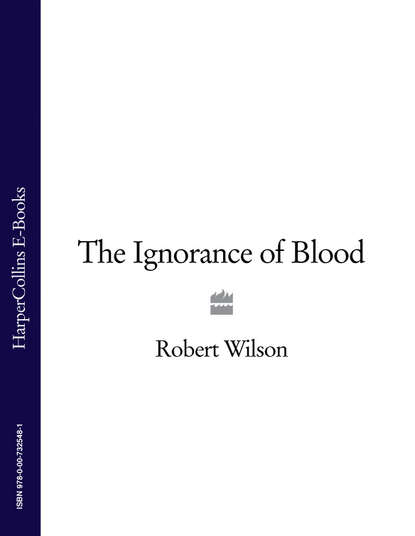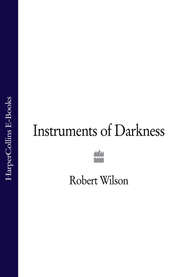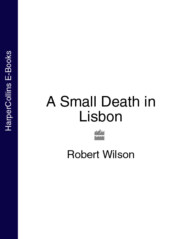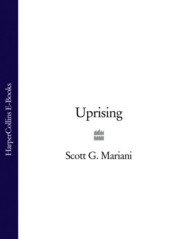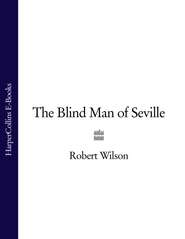По всем вопросам обращайтесь на: info@litportal.ru
(©) 2003-2024.
✖
The Ignorance of Blood
Автор
Год написания книги
2018
Настройки чтения
Размер шрифта
Высота строк
Поля
‘Marisa is no fool,’ said Falcón. ‘If you despised your womanizing father, would you be drawn to an incorrigible womanizer yourself?’
‘I doubt it would be the first time it had happened,’ said Zorrita, still feeling as solid as a rock.
‘Her sister went missing again, but this time she was over eighteen.’
‘So Marisa didn't go to the police.’
‘Her sister is the only family Marisa's got. Father, mother and stepmother are dead. Would you just shrug your shoulders if your sister ran off again?’
‘If I didn't care, yes,’ said Zorrita.
‘She cares,’ said Falcón.
‘You've still got a long way to go with this, Javier.’
‘I know,’ said Falcón. ‘I just wanted to ask you if you'd mind me digging around.’
‘Dig away, Javier. The way you're going, you'll come out in Buenos Aires.’
6 (#u64072c27-c7e8-509c-bbe6-201e346fc1eb)
La Latina district, Madrid – Friday, 15th September 2006,19.45 hrs
The early-evening sun was still bright, but low in the sky so it was already dark in the cavernous Madrid streets. Falcón was sitting in the back of a patrol car, which Zorrita had arranged for him. He felt foolish as they left the Jefatura and he lay down across the back seat. The driver saw him out of the corner of his eye. Falcon told him to keep looking straight ahead.
The driver dropped him off at the Ópera metro station and Falcón took the one-stop ride to La Latina. He checked the other occupants of the metro carriage. He was still smarting at Zorrita's scorn for his theory on Marisa Moreno. Was all this getting out of control in his mind? Everything looked dangerously plausible at three in the morning, but laughable by ten. And did he really have to be this careful about his assignation with Yacoub? Were there actually people on every street corner looking out for him? Once your mind had been proven unstable there was always a doubt, and not just to outsiders.
A car went into the garage of the apartment block on Calle Alfonso VI and Falcón ducked in behind it as the door was closing. He walked down into the dark, took the lift up to the third floor, stepped out into an empty landing, rang the buzzer and waited. He sensed the eyeball on the other side of the peep-hole. The door clicked open. Yacoub beckoned him in. They went through the customary pleasantries; Falcón asked after Yacoub's wife, Yousra, and his two children, Abdullah and Leila. There was nodding and thanks, but Yacoub was strangely subdued.
A full ashtray was the centrepiece of the living room, with a smoking, filterless cigarette on its edge. The curtains were drawn. A single lamp in the corner half-lit the room. Yacoub was wearing faded jeans and a white shirt untucked. He was barefoot and he'd shaved his long hair off to a short stubble, which he kept dusting with the palm of his hand as if he'd only just had it done. His head now matched his beard. His eyes seemed deeper set and darker, as if some wariness had put him in retreat to a safer place. He sat on the sofa with the ashtray at his side and smoked enthusiastically, with lips that twitched more than Falcón remembered.
‘I made some tea,’ he said. ‘You're all right with tea, aren't you?’
‘You always ask me that,’ said Falcón, throwing off his jacket, rolling up his shirt sleeves. ‘You know I'm fine with tea.’
‘Sorry about the heat,’ said Yacoub. ‘I don't want to turn on the air-con. I shouldn't be here. I'm hiding.’
‘Who from?’
‘Everybody. My people. Your people. The world,’ he said, and, as an afterthought, ‘Maybe myself, too.’
He poured the tea, stood up, paced around the room to bring his nerves back under control.
‘So, nobody knows about this meeting,’ said Falcón, encouraging Yacoub to open up.
‘This is just you and me,’ said Yacoub. ‘The only man I can trust. The only one I can talk to. The only one I can rely on not to use what has happened against me.’
‘You're nervous. I can see that.’
‘Nervous,’ he said, nodding. ‘That's why I like you, Javier. You keep me calm. I'm not just nervous. I'm paranoid. I'm totally fucking paranoid.’
These last words were accompanied by a ferocious sideways slash of the air in front of him. Falcón tried to remember whether he'd ever heard Yacoub swear.
Yacoub then launched himself into a long rant about the lengths to which he'd had to go in order to arrive unseen in this apartment.
‘You were careful, weren't you, Javier?’ he said at the end of it all.
Falcón reciprocated with his own procedure, which seemed to have a mildly calming influence on Yacoub, who listened and gnawed at a hangnail. Then he lit another cigarette, sipped his tea, which was too hot, sat down on the sofa, and stood up again.
‘The last time you got like this was after those four days in Paris,’ said Falcón. ‘But you were OK. You were taken back into the fold.’
‘My cover's not blown,’ said Yacoub, quickly. ‘No, there's no problem with that. It's just that they've found the perfect way to keep me … close.’
‘Keep you close?’ said Falcón. ‘You mean in the sense of not straying? Does that mean they suspect you?’
‘Suspect is too strong a word,’ said Yacoub, tucking his hand under his armpit and chopping the air with his cigarette. ‘They like me. They need me. But they are naturally unsure of me. It's the part of my brain that isn't Moroccan that makes them nervous.’
‘We're Andalucíans, Yacoub, same people, same Berber genetic marker,’ said Falcón.
‘The problem for them is that they can't rely on me to think in a certain way. I'm not consistently Moroccan,’ said Yacoub. ‘And that makes them uneasy.’
Falcón waited. If he'd been with another European he'd have asked the question: ‘Is this something to do with you being gay?’ But he had the same problem that the radical Islamist group, the GICM, had with Yacoub, but the other way round; Falcón couldn't rely on him to think like a European. His mentality for argument was more Moroccan. Direct questioning didn't work.
‘Before Friday noon prayers last week, Abdullah, my son, came to see me,’ said Yacoub. ‘I was alone in my study. He closed the door and came to the edge of my desk. He said: “I am going to tell you something that will make you very happy and very proud.” I was confused. The boy is only eighteen. I didn't remember any talk of a girl and, anyway, this would not be the way for that sort of thing to happen. I stood up as if I was about to hear important news. He came over to my side of the desk and told me that he had become a mujahideen and embraced me as a fellow warrior.’
‘The GICM have recruited him?’ said Falcón, cannoning out of his armchair.
Yacoub nodded, drew on the cigarette, took the smoke deep into his lungs and then held open his arms in a gesture of total helplessness.
‘Directly after the Friday noon prayers, he left to continue his training.’
‘Continue?’
‘Exactly that,’ said Yacoub. ‘The boy's been lying to me. He's taken four weekends away in the last two months. I thought he was going to see his friends in Casablanca, but he's been out in the country on military-training exercises.’
‘How was he recruited?’
Yacoub shrugged, shook his head. Falcón doubted that he was going to hear the precise truth.
‘He's been working with me at the factory, just temporarily before he goes to university at the end of the month. We go to a mosque in Salé. There are … elements there. I thought he was steering clear of them … clearly, he wasn't.’
‘Have you spoken to anyone about this?’
‘You are the first outsider.’
‘What about in the GICM?’
‘The military commander is not there at the moment. Even when he is, he's not easy to get to see. I've only conveyed my gratitude via an intermediary.’





